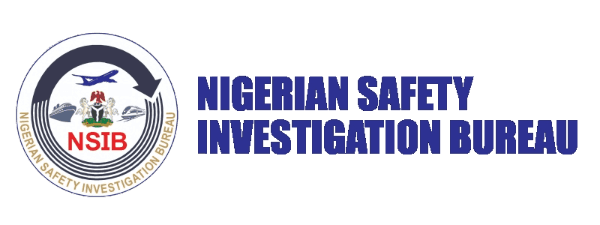The Nigerian Safety Investigation Bureau has reaffirmed its commitment to raising safety standards across all modes of transportation, including air, marine, rail, and land, through independent, globally benchmarked investigations.
This was disclosed by the Bureau’s Mrs. Bimbo Oladeji in a statement on Monday.
According to the statement, the NSIB is pioneering a unified, forward-looking framework for multimodal transport safety, aimed squarely at preventing accidents by learning from past incidents, under its expanded mandate as established by the NSIB Act of 2022.
Oladeji said central to this new oversight standard are two upcoming regulatory instruments currently in the final stages of development: the NSIB Casualty Investigation Regulations for Maritime Transport and the Rail and Track Accident Investigation Regulations for Nigeria’s rail sector.
These frameworks, she said, would mark a significant shift from mode-specific safety practices toward a harmonised system tailored to Nigeria’s unique transport landscape but built on international best practices.
She added that maritime regulations align with the International Maritime Organisation’s Casualty Investigation Code, creating a uniform process for probing incidents on Nigeria’s inland waterways, ports, and flagged vessels.
“Meanwhile, the rail regulations are being crafted to address the distinct structure of the Nigerian railway network, with international rail safety standards as reference points,” she said.
These advances follow NSIB’s successful implementation of ICAO Annex 13 in air accident investigations, an international standard that has significantly contributed to aviation safety worldwide and has influenced Nigeria’s own aviation reforms.
The Director-General and CEO of NSIB, Capt. Alex Badeh, said, “The goal is not merely to investigate accidents but to ensure that every finding and every safety recommendation becomes a cornerstone for safer transportation in Nigeria.
“Our regulations are not only about compliance; they are about relevance to our waterways, rail systems, and the millions of Nigerians who depend on them daily.”
Despite its mandate to investigate and recommend, NSIB underscored that implementation lies with sister agencies, calling on key stakeholders such as NIMASA, NPA, NIWA, NOSDRA, the Nigerian Shippers Council, and the Nigerian Railway Corporation to begin proactively developing internal mechanisms to adopt and apply NSIB’s recommendations.
“Safety recommendations are not mere reports; they are calls to action. The effectiveness of any investigation is measured not by how well it is written but by how well it is implemented. We urge our partner agencies to view this as a shared mission for national safety,” the NSIB boss stated.
This approach builds on NSIB’s existing compliance with ICAO Annex 13, a globally adopted framework for aviation accident investigations. The Bureau hopes that this harmonised and “mode-agnostic” methodology will foster a unified safety culture across all forms of transportation in Nigeria.
NSIB said its regulatory development process has included wide-ranging field engagements, including visits to jetties, ports, inland waterways, and rail lines to ensure the frameworks are “adaptable, devoid of theoretical ambiguities, and fully responsive to Nigeria’s transport landscape.”
However, while the NSIB is tasked with conducting independent investigations and issuing safety recommendations, the implementation of these recommendations depends on other key transport agencies. In light of this, the Bureau is urging all relevant stakeholders to begin taking proactive steps toward embracing and acting on the recommendations.
Stakeholders identified by the Bureau include the Nigerian Maritime Administration and Safety Agency, Nigerian Ports Authority, Nigerian Shippers Council, National Inland Waterways Authority, National Oil Spill Detection and Response Agency, and Nigerian Railway Corporation.
“NSIB stated, “Safety recommendations are not mere reports; they are calls to action.
“The effectiveness of any investigation is measured not by how well it is written but by how well it is implemented. We urge our partner agencies to view this as a shared mission for national safety.”
NSIB also emphasised that insights from different modes of transport, whether marine, rail, or aviation, should not be treated in isolation but rather serve as a collective benchmark for national safety strategies.
As the Bureau prepares to present the finalised regulations to stakeholders in the coming weeks, it has pledged to continue engaging both agencies and the general public to raise awareness about their critical roles in transforming Nigeria’s transport safety landscape.
The statement further read, “With Nigeria steadily expanding its transport infrastructure as part of its economic development goals.
“The role of safety cannot be overstated. The NSIB stands ready, not only as an investigator of past tragedies but also as a catalyst for a safer and more resilient transport future for all Nigerians.”















